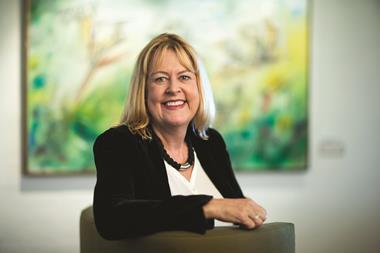As annual results came in from the remaining three of Sweden’s main four national pension buffer funds at the end of this week, AP4 was revealed as the highest-returning fund – and AP1 disclosed that it has now changed internal rules to allow more deviation from the benchmark in future.
AP4 this morning reported a 9.6% return on its investments after costs for 2023, narrowly beating the 9.1% AP1 posted yesterday.
Both figures are higher than the 7.8% reported by AP3 yesterday – and more than the gain of 5.9% the Gothenburg-based AP2 posted on 12 February.
The previous year – loss-making for all four funds as for investors more broadly – saw AP4 with the widest 2022 loss of the big Swedish buffer funds, with a -11.9% return, while AP1 returned -8.6%.
In an interview with IPE, Kristin Magnusson Bernard, AP1’s chief executive officer, said that following a major review process during 2023, the fund had changed its governing rules to increase the permissible tracking error from its benchmark and redefined some of the work of its board sub-committees.
“It’s been a challenging few years for boards and management in general – and as well as making governance strict enough and that we can evaluate and fulfil our fiduciary duty, we have also needed to think about how we need to adapt to create value and stay close to our mandate,” she said.
“Something we figured out is the way volatility behaved, and the way our model behaved, some of our governance frameworks were not well suited to doing our best in these circumstances,” she said.
The CEO said: “We found that the level of deviation from the reference portfolio set by the board could change and be complemented by additional governance guardrails to give me and the investment team increased opportunity to benefit from our advantages as long-term investors.”

“If you set the tracking error mandate too tightly you actually have a hard time realising the long-term potential which should be one of our strengths,” she added.
As a result of all the work, which also involved international experts reviewing all of AP1’s governance documents, she said in December the board decided on some changes to how the tracking error around the reference portfolio mandate is formed.
“Also some changes were made to what type of issues the sub-committees of the board will focus on, because that was also an area where they felt they change was needed,” the CEO noted.
Commenting on the challenges for investment so far in 2024, Magnusson Bernard said there has been a lot of back and forth in the equity and bond markets.
“Some of the equity/bond correlations are not quite as you would expect. Not only is volatility back, but some of the correlations between asset classes and within asset classes don’t behave exactly the way you would think,” she added.
“That means you need to be focused, you need to be nimble and to work a lot harder to create value,” she said.
Read the digital edition of IPE’s latest magazine























